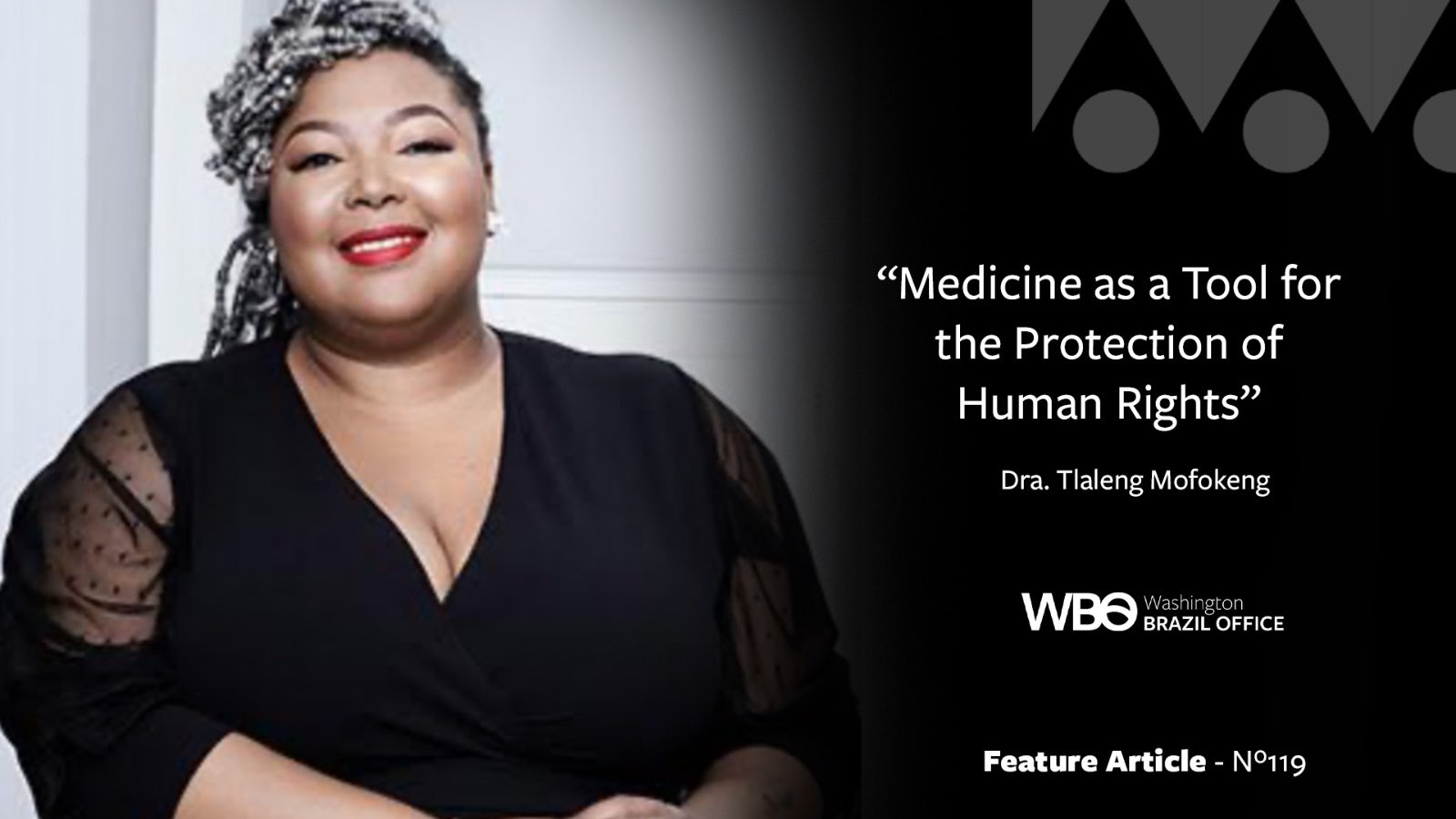Medicine as a Tool for the Protection of Human Rights
Dr Tlaleng Mofokeng (MBChB), UN Special Rapporteur on the right to health. This article was written for issue 119 of the WBO weekly newsletter, dated May 29, 2024. To subscribe to the newsletter, enter your email in the field below.
I view the practice of medicine in itself as a tool for the promotion and protection of human rights.
When I was appointed the UN Special Rapporteur on the highest attainable standard of physical and mental health, appointed during the COVID-19 pandemic, I wanted to spotlight and foster an understanding of how coloniality, racismo, and structural discrimination have an impact on the right to health; in clinical care, at the level of health systems and in underlying determinants of health. Coloniality, a concept coined by Walter Mignolo around 1995, refers to the living legacies of European colonialism in social orders and knowledge systems, which created racial hierarchies that enable the social discrimination that has outlived formal colonialism. It is with this in mind that advocating for the intentional institutionalization of anti-racism in the public health architecture systems – and therefore, equality in the opportunity to realize the right to health for all – become one of the primary focuses of the legacy I want to leave as Special Rapporteur.
Eliminating discrimination in the practice of medicine requires paying sufficient attention to groups of individuals that suffer historical or persistent prejudice instead of merely comparing the formal treatment of individuals in similar situations. I advocate for the application of the right to health framework that is, acceptability, accessibility, affordability and quality care, to deepen understanding of the negative impact of coloniality, racism and the oppressive structures embedded in the global health architecture, which disproportionately affects Black people, Indigenous communities and other groups who are racially discriminated against in the global South.
This is a necessary measure to ensure a nuanced understanding and the use of collective power to win freedom for all oppressed people.
I also reflect further on what the Special Rapporteur on contemporary forms of racism, racial discrimination, xenophobia and related intolerance discussed in a report of 2018. In that report, the Special Rapporteur discussed the importance of an intersectional approach to racial discrimination in the context of citizenship, nationality and immigration laws that accounted for the compounding and differential effects of sex and gender, among other factors, and noted that States continued to enforce patriarchal laws that used gender-based discrimination to achieve racial, ethnic, and religious exclusion.
States should comply with international human rights standards when implementing laws and policies regarding citizenship, nationality, and immigration, and that they should fulfill their obligations to achieve substantive racial equality.
I emphasize the need to place substantive equality in the center of the operationalization of the right to health. This requires an unequivocal commitment to the realization of universal human rights principles as enshrined in the Universal Declaration of Human Rights and other international human rights instruments, including the International Covenant on Civil and Political Rights, the International Covenant on Economic, Social and Cultural Rights, the International Convention on the Elimination of All Forms of Racial Discrimination and the Durban Declaration and Programme of Action.
Substantive equality seeks to address structural and indirect discrimination and takes into account power relations. It acknowledges that the “dilemma of difference” entails both ignoring and acknowledging differences among human beings in order to achieve equality.
In my mandate, I look into how “gender reaches into disability; disability wraps around class; class strains against abuse; abuse snarls into sexual orientation; and sexual orientation folds on top of race, with everything finally piling into a single human body”. In particular, I pay attention and name how power moves and shifts through people leading to a differential access to goods, facilities and services and therefore understand with nuance the obstacles that stand between individuals and their enjoyment of sexual and reproductive health rights. These obstacles are interrelated and entrenched, operating at different levels: in clinical care, at the level of health systems, and in the underlying and social determinants of health.
I apply a life-cycle approach to my work, paying special attention to groups in vulnerable situations, or that have historically been subjected to discrimination. In addition, I will continue to pay attention to the issue of criminalization of: same-sex relations; being trans-diverse or transgender; abortion; sex work; and health status, such as being HIV-positive or being diagnosed with COVID-19 infection.
The right to health is closely related to and dependent upon the realization of other human rights, including the rights to life, non-discrimination, equality, the prohibition against torture, privacy, access to information, and the freedoms of association, assembly, and movement. These and other rights and freedoms address integral components of the right to health.
Every single one of us deserves to have our rights respected, protected, and upheld. To that end, we must make sure that every solution we devise – from clinical care, research, legislative and policy reforms to changes in procurement practices, public-health initiatives, and financing – is centered on the restoration of dignity of people.

